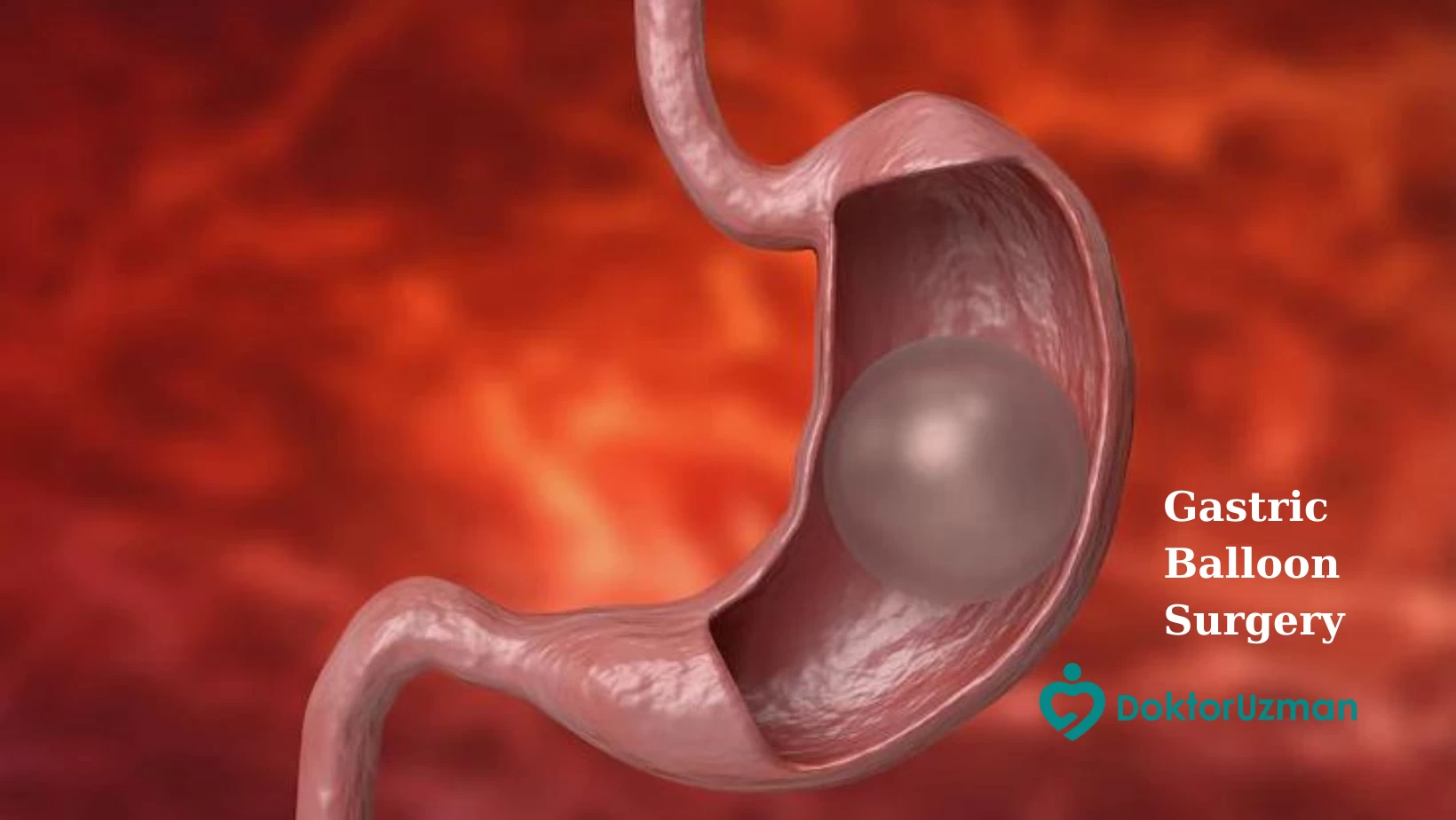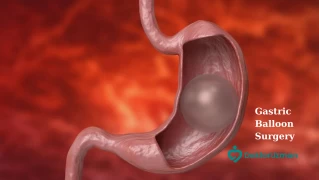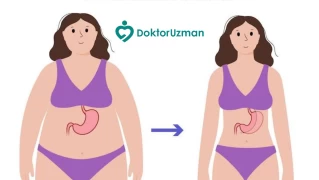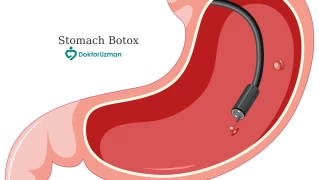
Gastric Balloon Surgery
- Gastric Balloon Surgery
- Gastric Balloon Surgery
- Things to Consider Before Gastric Balloon Surgery
- Things to Consider After Gastric Balloon Surgery
- Recovery Process After Gastric Balloon Surgery
- Gastric Balloon Surgery success rates in Turkey
Gastric Balloon Surgery
Gastric balloon surgery is a type of weight loss procedure that involves inserting a balloon into the stomach to take up space and help a person feel full faster. The procedure is generally performed as a minimally invasive outpatient procedure using a thin, flexible tube called an endoscope, which is inserted through the mouth and into the stomach.
During the procedure, the balloon is inflated with saline solution to a size that takes up space in the stomach and helps reduce the amount of food a person can eat. The balloon is left in place for a period of six months to a year, during which time the person is expected to follow a diet and exercise program to help them lose weight.
Gastric balloon surgery is generally considered to be less invasive and risky than other types of weight loss surgery, such as gastric bypass or gastric sleeve surgery. However, it is not a permanent solution and the weight loss achieved with the procedure is typically less than with other types of surgery. In addition, the procedure carries some risks, including the possibility of balloon rupture or deflation, which can cause abdominal pain and nausea.
It is important to discuss the potential benefits and risks of gastric balloon surgery with a healthcare provider before making a decision about whether or not to undergo the procedure.
Things to Consider Before Gastric Balloon Surgery
Gastric balloon surgery, also known as intragastric balloon therapy, is a weight loss procedure in which a balloon is inserted into the stomach through the mouth and filled with a sterile saline solution. The balloon takes up space in the stomach, which can help people feel full faster and eat less. This procedure is typically done on a outpatient basis and does not require any incisions or scars.
Here are some things to consider before deciding to undergo gastric balloon surgery:
Your health: Gastric balloon surgery is generally considered safe, but like any medical procedure, there are risks involved. Your doctor will assess your overall health and determine if you are a good candidate for the procedure.
Your weight loss goals: Gastric balloon surgery is not a permanent solution for weight loss. It is intended to help you lose weight in the short term, typically about 6 months to a year. After the balloon is removed, you will need to follow a healthy diet and exercise plan to maintain your weight loss.
Your lifestyle: Gastric balloon surgery requires a commitment to lifestyle changes, including following a specific diet and exercise plan. You will need to be prepared to make these changes in order to see the best results from the procedure.
The cost: Gastric balloon surgery is typically not covered by insurance, so you will need to pay for the procedure out-of-pocket. The cost can vary depending on the type of balloon used and the location of the procedure.
The potential side effects: Some people experience side effects after undergoing gastric balloon surgery, including nausea, vomiting, abdominal pain, and constipation. These side effects are typically temporary and can be managed with medication.
It is important to carefully consider all of these factors before deciding to undergo gastric balloon surgery. Be sure to discuss your decision with your doctor and get a thorough understanding of the potential risks and benefits of the procedure.
Things to Consider After Gastric Balloon Surgery
Gastric balloon surgery, also known as intragastric balloon treatment, is a non-surgical procedure that involves placing a balloon inside the stomach to help with weight loss. The balloon is inserted through the mouth and into the stomach using an endoscope, and then filled with a sterile saline solution. The procedure is typically performed on an outpatient basis and does not require any incisions.
After the procedure, it is important to follow the instructions provided by your healthcare team, including any dietary restrictions and guidelines for physical activity. Some things to consider after gastric balloon surgery include:
Diet: After the procedure, you will be on a liquid diet for a few days to allow your stomach to heal. Gradually, you will be able to advance to a pureed diet and then to a solid diet. It is important to follow the prescribed diet to ensure proper healing and to avoid complications.
Physical activity: It is important to stay active after the procedure to help with weight loss and overall health. However, you should follow any activity restrictions or guidelines provided by your healthcare team, as strenuous activity may be discouraged in the initial recovery period.
Follow-up appointments: It is important to attend all follow-up appointments with your healthcare team to monitor your progress and address any concerns or issues that may arise.
Medications: You may be prescribed medications to help with the recovery process or to manage any potential side effects. It is important to take these medications as directed and to let your healthcare team know if you experience any adverse reactions.
Lifestyle changes: Gastric balloon surgery is not a magic solution for weight loss and long-term success will depend on your commitment to making healthy lifestyle changes, such as eating a balanced diet and exercising regularly. It is important to work closely with your healthcare team to develop a plan that is right for you.
Recovery Process After Gastric Balloon Surgery
The recovery process after gastric balloon surgery typically varies from person to person. Most people can return to their normal activities within a few days of the procedure, but it is important to follow the specific instructions provided by the surgeon.
Immediately after the procedure, patients may experience some discomfort, bloating, and nausea. They may be prescribed pain medication to help manage any discomfort. It is important to follow the surgeon's instructions for taking any prescribed medication and to contact the surgeon if the pain is severe or does not improve.
For the first few days after the procedure, patients may need to follow a liquid diet to allow the stomach to heal. They will then gradually be able to resume a normal diet, but it is important to follow the specific dietary guidelines provided by the surgeon. These guidelines may include avoiding high-fat and sugary foods, eating small, frequent meals, and taking vitamin and mineral supplements.
It is important for patients to drink plenty of fluids and to get plenty of rest after the procedure. They should also avoid strenuous activities, such as lifting heavy objects or exercising, until the surgeon gives permission to resume these activities.
Most people will need to follow up with the surgeon about a week after the procedure to check on their progress and to discuss any concerns or questions they may have. It is important for patients to attend all follow-up appointments and to follow the surgeon's instructions to ensure a successful recovery.
Gastric Balloon Surgery success rates in Turkey
Gastric balloon surgery, also known as intragastric balloon therapy or weight loss balloon, is a procedure in which a silicone balloon is inserted into the stomach through the mouth and inflated with saline solution. The inflated balloon takes up space in the stomach, helping patients feel fuller and eat less. This procedure is typically performed as a minimally invasive, outpatient procedure and is often used as a temporary measure to help patients lose weight before more permanent weight loss procedures, such as gastric bypass surgery or gastric sleeve surgery.
The success of gastric balloon surgery depends on a variety of factors, including the patient's overall health, their motivation to lose weight, and their willingness to follow a healthy diet and exercise regularly. Some studies have reported success rates of up to 50% for gastric balloon surgery, although individual results may vary. It is important to note that gastric balloon surgery is not a permanent weight loss solution and is typically used as a temporary measure to help patients lose weight before more permanent weight loss procedures.
It is not possible for me to provide specific success rates for gastric balloon surgery in Turkey, as these rates may vary depending on the qualifications and experience of the surgeons performing the procedure, as well as other factors. It is important for patients to carefully research the procedure and the qualifications of the surgeon performing the procedure before undergoing any surgical procedure. It is also important for patients to discuss the potential risks and benefits of the procedure with a qualified healthcare provider.
#mide balonu#Gastric Balloon




